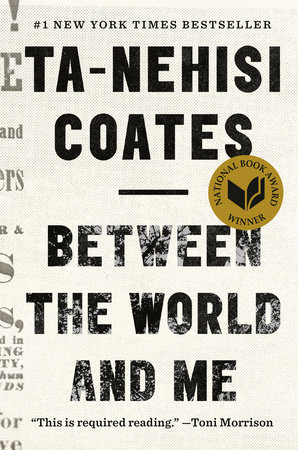
Ta-Nehisi Coates, Between the World and Me, Penguin Random House, 2015.
I needed more books. At Howard University, one of the greatest collections of books could be found in the Moorland-Spingarn Research Center, where your grandfather once worked. Moorland held archives, papers, collections and virtually any book ever written by or about black people. For the most significant portion of my time at The Mecca, I followed a simple ritual. I would walk into the Moorland reading room and fill out three call slips for three different works. I would take a seat at one of these long tables. I would draw out my pen and one of my black-and-white composition books. I would open the books and read, while filling my composition books with notes on my reading, new vocabulary words, and sentences of my own invention. I would arrive in the morning and request, three call slips at a time, the works of every writer I had heard spoken of in classrooms or out on the Yard: Larry Neal, Eric Williams, George Padmore, Sonia Sanchez, Stanley Crouch, Harold Cruse, Manning Marable, Addison Gayle, Carolyn Rodgers, Etheridge Knight, Sterling Brown. [p.46]
...
The pursuit of knowing was freedom to me, their right to declare your own curiosities and follow them through all manner of books. I was made for the library, not the classroom. The classroom was a jail of other people's interests. The library was open, unending, free. Slowly, I was discovering myself. [p.48]
COMMENT
"The classroom was a jail of other people's interests. The library was open, unending, free. " It's a statement so beautiful I'd like to engrave it on the marble facade of a library, if libraries still had marble facades.
Ta-Nehisi Coates was destined to grow up to be a bookish, well-read person. His father, W. Paul Coates, worked as African American Studies reference and acquisition librarian at Howard University’s Moorland-Spingarn Research Center; He also owned a bookstore and founded Black Classic Press.
The "jail of other people's interests" is Coates fils' rationale for his idiosyncratic research method but it also gets to the core what libraries are all about. Education has done its job when students are able break free from lectures, classroom assignments and the pursuit of grades. All that schoolwork is a foundation, but the library is the place where students truly become independent thinkers and complete their transformation into scholars.

No comments:
Post a Comment